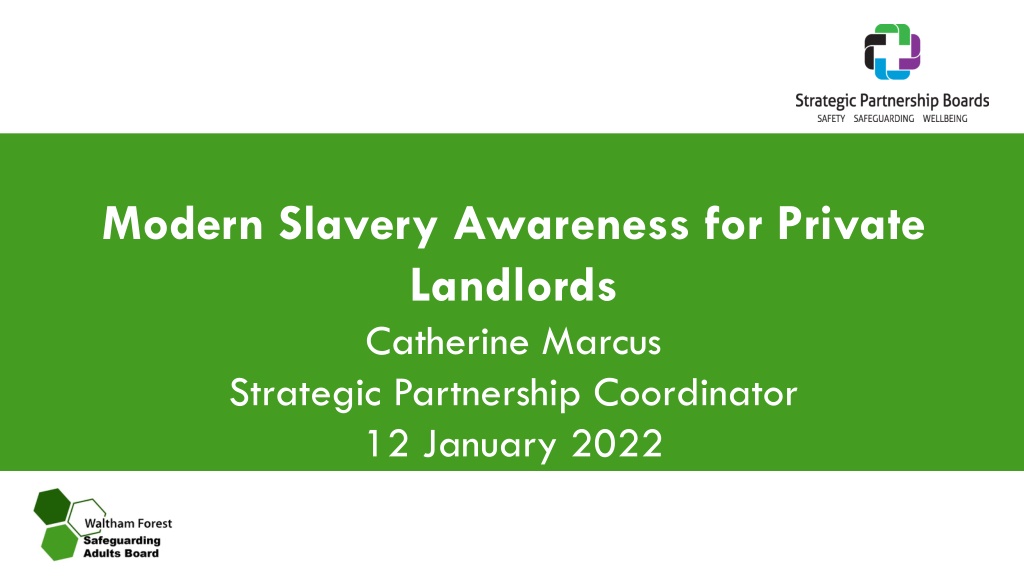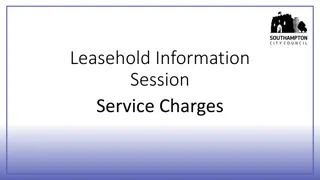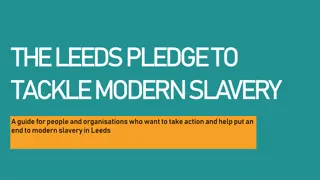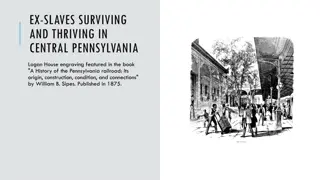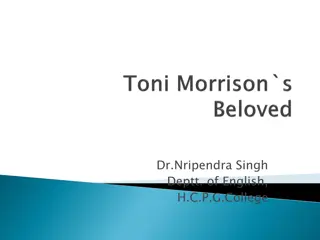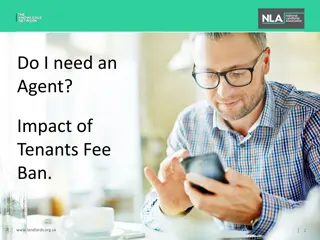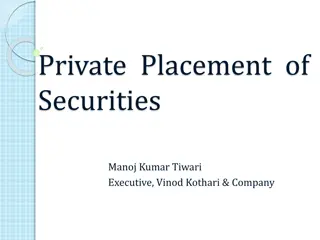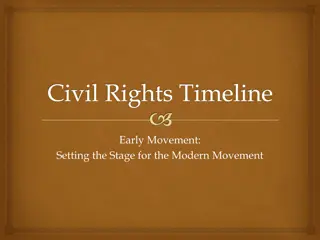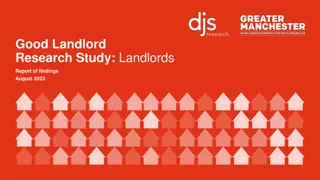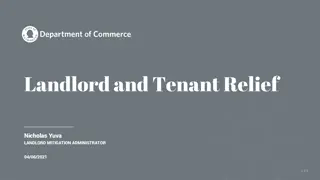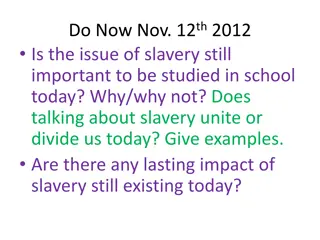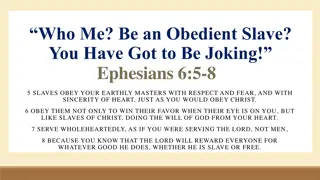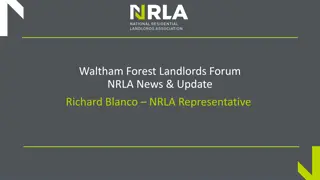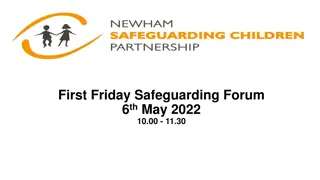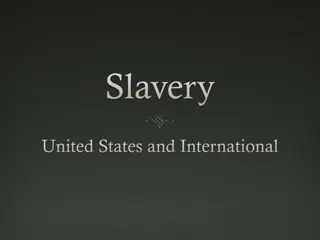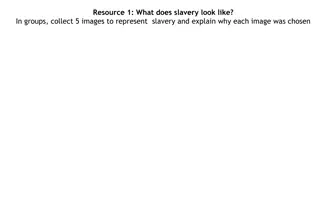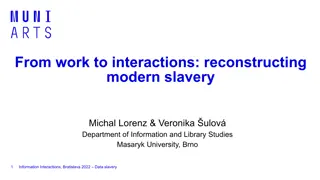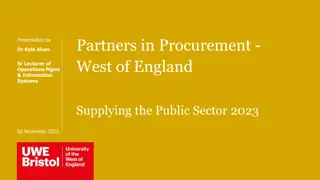Understanding Modern Slavery Awareness for Private Landlords
Modern slavery awareness is crucial for private landlords to identify and combat various forms of exploitation such as forced labor, human trafficking, and domestic servitude that victims may endure. This article discusses the signs, risks, and legal implications associated with modern slavery in private rented accommodations, emphasizing the importance of taking action and safeguarding vulnerable individuals.
Download Presentation

Please find below an Image/Link to download the presentation.
The content on the website is provided AS IS for your information and personal use only. It may not be sold, licensed, or shared on other websites without obtaining consent from the author. Download presentation by click this link. If you encounter any issues during the download, it is possible that the publisher has removed the file from their server.
E N D
Presentation Transcript
Modern Slavery Awareness for Private Landlords Catherine Marcus Strategic Partnership Coordinator 12 January 2022 Families at the Heart of Our Place
Modern Slavery Awareness for Private Landlords The Home Office estimates that there are around 13,000 victims of modern slavery in the UK. There could be many more. Many will be living in private rented accommodation. We want to help landlords in Waltham Forest to: Reduce the risk of modern slavery in their properties Look for the signs of modern slavery Take action if they have concerns that victims of slavery may be living at their property Modern slavery will usually involve some sort of housing issue: Poor quality housing Overcrowding Noise Waste Anti-social behaviour Breach of the immigration act Other forms of illegal activity Finally, landlords can be criminally liable if they are aware illegal activity is taking place and do not report it or takes step to prevent it
Modern Slavery Awareness for Private Landlords What is Modern Slavery? Modern slavery is an umbrella term, encompassing human trafficking, slavery, servitude and forced labour. Slavery: Someone is in slavery if they are forced to work through mental or physical threat; owned or controlled by an employer , usually through mental or physical abuse or the threat of abuse; dehumanised, treated as a commodity or bought and sold as property ; physically constrained or have restrictions placed on their freedom Servitude: Servitude is similar to slavery, in that a person is under an obligation to provide a service which is imposed on them, but there is no element of ownership. Forced work: Forced work is defined as work or service which is exacted from any person under the menace of any penalty and for which the person has not offered themself voluntarily . Forced work has been uncovered in a number of different industries including manufacturing, food processing, agriculture and hospitality Human trafficking: Human trafficking is when adults and children are moved and forced into exploitation. The movement could be international but also within the country, from one city to another or even just a few streets. A person is a victim of human trafficking even if they haven t yet been exploited but have been moved for the purposes of exploitation
Modern Slavery Awareness for Private Landlords Victims of modern slavery can be exploited in many different ways and may experience more than one type of exploitation at the same time. Sexual exploitation: victims may be forced into prostitution, pornography or lap dancing for little or no pay. They may be deprived of their freedom of movement and subjected to threats and violence Labour exploitation: a victim is made to work with little or no pay, and may face violence or threats. If they are foreign nationals, their passports may be confiscated by their exploiters and they may be made to live in terrible conditions and under constant threat Forced criminality: victims can be forced to participate in a range of illegal activities including pick pocketing, shop lifting, cannabis cultivation, county lines exploitation and other activities Organ harvesting: victims are trafficked in order for their internal organs (typically kidneys or the liver) to be harvested for transplant Domestic servitude: victims work in a household where they may be ill-treated, humiliated, subjected to exhausting hours, forced to work and live under unbearable conditions or forced to work for little or no pay. In some cases forced marriage can lead to domestic servitude Financial exploitation: benefit fraud, where benefits are falsely claimed by perpetrators on behalf of their workers; bank accounts being opened in a victim s name but used by perpetrators; or workers wages being paid directly into the exploiters own bank accounts by companies who think they are paying a worker individually
Modern Slavery Awareness for Private Landlords There are a number of ways landlords can help identify modern slavery: Identifying individuals Are occupants of the property in possession of their own passports, identification or travel documents, or are these documents in the possession of someone else? Identifying households Are occupants transported to and from the property jointly? Is there evidence of poor living conditions, sub-letting or over-crowding? Are occupants of the property able to communicate on their own behalf? Do they allow others to speak for them when spoken to directly? Have there been reported issues with noise, refuse etc that suggest potential issues within the property? Do occupants of the property act as if they were instructed or coached by someone else? Are the people occupying the property, the person, or people named on the tenancy agreement? Do occupants of the property appear to have freedom of movement? Is the person paying the rent different to the person occupying the property? Does one person pay rent on behalf of a number of other individuals and is that person named on the tenancy agreement? Has somebody offered to pay the full cost of the tenancy upfront? Do occupants of the property appear withdrawn or frightened?
Modern Slavery Awareness for Private Landlords Landlords need to balance their need to understand issues in their properties with their tenants right to peaceful enjoyment of their tenancies. Nevertheless, there are a number of steps that you can take to try to mitigate against the risk of your properties being used to house victims of slavery. Background checks Knowing your tenants Monitoring payment records Regular checks of the property and maintaining links with the community Recognising unusual behaviours Notification of issues
Modern Slavery Awareness for Private Landlords What to do if you are concerned about a tenant and / or activity at your property: For more information: Landlords' liability for tenants' criminal activity - Walker Morris A false alarm is better than no alarm. If you are concerned about the welfare of a tenant or tenants, or believe that something untoward may be taking place at your property, you should not challenge tenants yourself. If you believe a person is in immediate danger, call 999. Tackling modern slavery: a guide for landlords | Local Government Association Modern Slavery Homepage - Unseen (unseenuk.org) Otherwise, if you have suspicions, report them to the Modern Slavery Helpline on 08000 121 700. What is forced labour, modern slavery and human trafficking (Forced labour, modern slavery and human trafficking) (ilo.org) If you are worried about a vulnerable adult, or if you think someone is being abused or neglected, please contact the safeguarding adults team at Waltham Forest Direct: Phone: 0208 496300 Email: WFDliaison@walthamforest.gov.uk More information: What to do if you are worried about a vulnerable adult | London Borough of Waltham Forest Contact Waltham Forest s private sector housing team on propertylicensing@walthamforest.gov.uk with any concerns.
